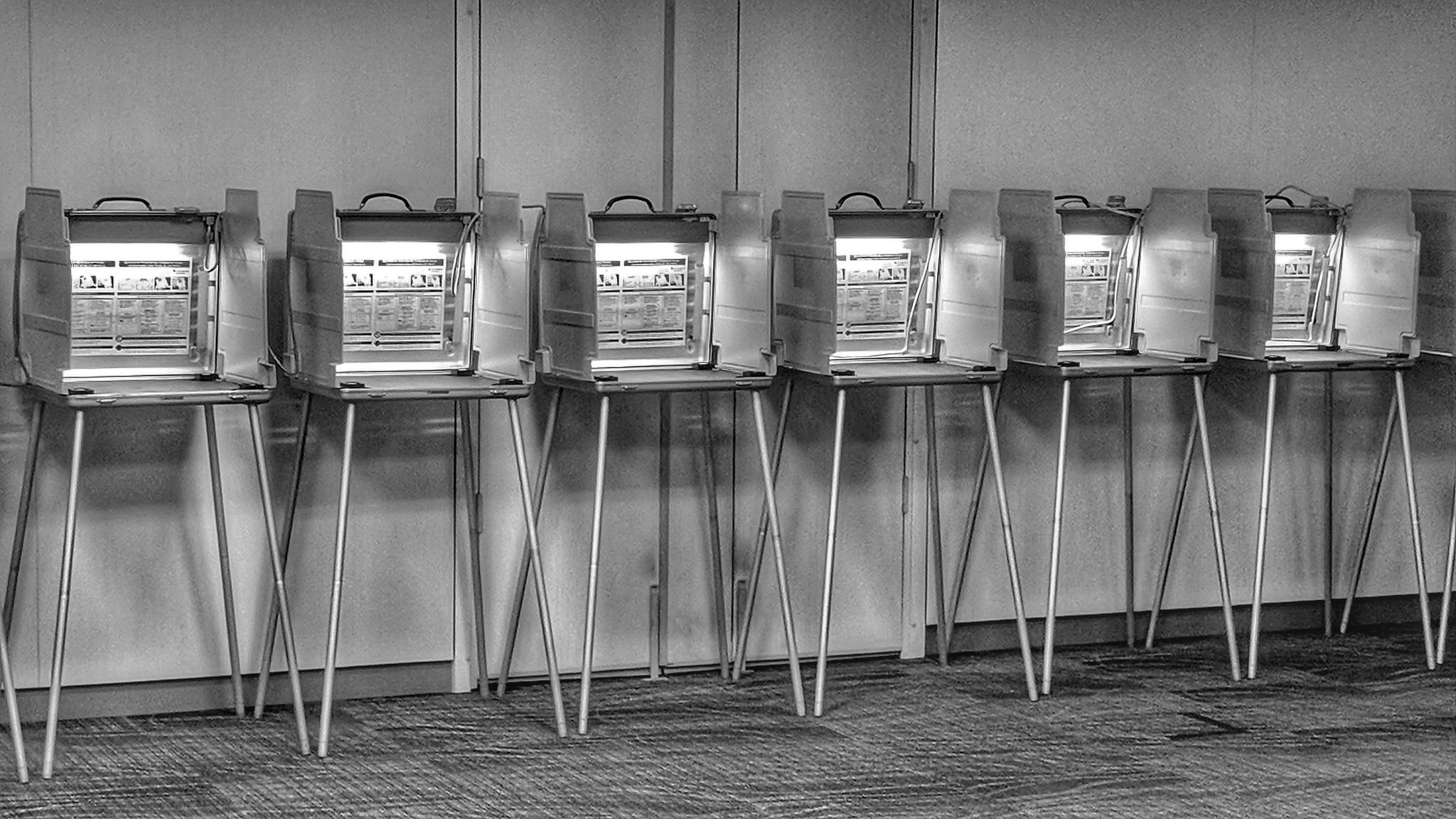American Voter Turnout Is an International Disgrace
Even though the 2018 elections had the highest midterm voter turnout in half a century, fewer than half of eligible voters cast their ballots. Mark Gunn / CC BY 2.0
Mark Gunn / CC BY 2.0
History was made in the U.S. midterm elections, most notably the Democratic takeover of the U.S. House of Representatives. An unprecedented 100 women were elected to serve in Congress, among them Native American, Muslim, African-American, Latina and LGBTQ firsts.
But what is also true, less than half of eligible voters voted: 47 percent. Even though it represents the highest midterm voter turnout in half a century, it is shameful. Chief among the reasons is the Republican Party’s aggressive voter suppression efforts that it has successfully pursued for decades, primarily in states where Republicans have control of the state legislature and the governor’s office. People are organizing against this wholesale disenfranchisement, with two major lessons immediately apparent from the midterms: First, grassroots organizing gets results; and second, there is a huge amount of work yet to be done to ensure a fair, representative democracy with an engaged and empowered electorate.
We need look no further than Mississippi, where a runoff election for the U.S. Senate was just held. Republican Cynthia Hyde-Smith defeated African-American Democrat Mike Espy, formerly both a member of Congress and U.S. Secretary of Agriculture, by about 8 percentage points in a racially charged election. While that may seem like a solid victory, one of the sharpest and sagest organizers in the South, Rev. Dr. William Barber, sees it differently:
“Mike Espy in some ways has already broken history to even be in a runoff. Five or 10 years ago, we wouldn’t see what we’re seeing in Georgia and Florida and Texas and now in Mississippi,” he said on the Democracy Now! news hour, commenting on the strong showing by people of color and progressives in states long considered conservative strongholds.
In Georgia, Stacey Abrams, who would have been the first African-American woman governor in the United States, lost by a razor-thin margin to her opponent, Republican Brian Kemp, who was Georgia’s secretary of state during his campaign. Refusing to recuse himself, he actually oversaw the very election in which he was a candidate. As secretary of state, Kemp purged up to 1.3 million voters from Georgia’s voter rolls, and specifically held up processing 53,000 voter registration forms that mostly were from people of color, registrants who would tend to vote Democratic. A court order finally forced him to register those voters. Stacey Abrams announced a new group, Fair Fight Action, which has filed a federal lawsuit seeking to force Georgia election officials to fix what she says are systemic problems with its election system.
In Florida, African-American Andrew Gillum, mayor of Tallahassee, lost narrowly to Trump-protege Ron DeSantis in a campaign also marred by racist robocalls and racist comments by DeSantis himself, telling voters not to “monkey this up” by voting for Gillum. The race was close enough to force a recount and Gillum ultimately lost, but in the same election, Florida voters passed Amendment 4, restoring voting rights to 1.4 million Floridians who have a felony record.
Barber has been organizing what she calls the “third reconstruction,” a political reorganization of the South, and explained how the Mississippi Senate runoff election served as on organizing opportunity:
“I was able to go there and be in churches with people who came, white and black and Latino, who were organizing, who recognize that Mississippi is not a red state, but Mississippi is their state, and … the demographics have shifted. They understand that only 45 percent — 45 percent of people didn’t vote in 2016. They understand that only 29 percent of the people voted in 2014 to elect [former U.S. Sen. Thad] Cochran. He only won by 125,000 votes, and some 600,000 African Americans that could have voted didn’t vote, and almost a million white people who could have voted didn’t vote.”
Mike Espy lost to a Republican incumbent senator in Mississippi by just over 68,000 votes, a margin of less than 8 percent (Hyde-Smith was appointed to replace Cochran last April, when he resigned for health reasons). Hyde-Smith’s victory came despite her joking about public hangings, and after a Facebook photo surfaced showing her wearing a Confederate Army cap, holding a Civil War rifle. She captioned the picture, “Mississippi history at its best!”
As Barber notes, there are over 600,000 African-Americans in Mississippi who are eligible to vote, but who didn’t. A concerted effort to engage those citizens, to empower them to vote, to get them to the polls, could easily swing an election in Mississippi. “The South is changing,” Barber said. “The Southern strategy is beginning to be broken. We are seeing the birth pains of this Third Reconstruction.”
Your support is crucial…With an uncertain future and a new administration casting doubt on press freedoms, the danger is clear: The truth is at risk.
Now is the time to give. Your tax-deductible support allows us to dig deeper, delivering fearless investigative reporting and analysis that exposes what’s really happening — without compromise.
Stand with our courageous journalists. Donate today to protect a free press, uphold democracy and unearth untold stories.







You need to be a supporter to comment.
There are currently no responses to this article.
Be the first to respond.